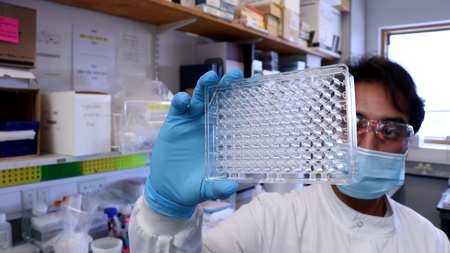A new report launching in Parliament today and featuring a case study from the University of Aberdeen shows that physiology graduates contribute £22.6 billion to the UK economy ever year. This is equal to supporting 777,200 jobs.
In the first independent analysis of its kind to quantify the impact of physiology education on the UK economy, it was found that every £1 invested by a student in their physiology education yields them £4.40 in higher future wages.
Approximately 97% of students who study physiology related courses stay in the UK after graduating, contributing a staggering £35.6 billion to society and the public purse through higher earnings and added tax revenue. Plus, they will save £825.9 million in social costs across healthcare, unemployment benefits and crime.
The analysis, carried out by independent economy agency Emsi Burning Glass for The Physiological Society and Academy for Healthcare Science, demonstrates the importance and need for physiology to be at the heart of university courses, public health and clinical care.
The report will be launched in Parliament on Tuesday 7 June at a reception hosted by Stephen Metcalfe MP and including contributions from Catherine Ross, Scotland’s Chief Healthcare Science Professions Officer and Chi Onwurah MP, the Shadow Science Minister. The event also features MPs from across the country, as well as leading physiologists, educators and practitioners.
In addition to the economic analysis, the report also features case studies showing the variety and impact of occupations help by physiology graduates. From the University of Aberdeen, Professor Mirela Delibegovic’s project to develop a new test using AI-assisted technology which has proven to be almost 100% accurate in detecting Covid antibodies.
Case studies like this one show that, beyond the lab, physiologists are working in communities, hospitals, elite sport settings, schools, universities and many other environments with huge benefits for society as a whole.
The report is focused on the economic impact of courses related to the physiological sciences delivered by UK higher education institutions in terms of added income to the UK economy and jobs supported. The findings are based on student data from the academic year 2018-19. The total contribution to the UK economy could be greater than calculated in this report.
Professor Derek Scott of the University of Aberdeen and Expert Group Co-Chair of The Physiological Society, said: “Physiologists played a key role during the pandemic and this report helps to quantify what this type of education brings to the UK economy.
“We are delighted that the report’s case studies demonstrate the variety and breadth of courses with a core physiological component and the impact that they can have. The findings demonstrate the inextricable link between education with a core physiological component and tangible benefits to patients, the public and the economy as a whole.
“Our hope is that this report will serve as a constant reminder of the importance and need for physiology to be at the heart of future-proofing university courses, public health and clinical care.
“As an institution our commitment to teaching courses with a physiology element is reinforced by our new £35 million Science Teaching Hub which will revolutionise this kind of teaching for our students.”


